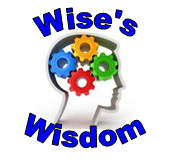As you know, technology use can be challenging for everyone sometimes. Technology does not always work the way that we think it should work. Fischer's Gradual Release Model is an excellent strategy when it comes to helping staff and students to use technology effectively. Students are very comfortable using and trying technology tools, but they are not always proficient user's of technology.
Making a Difference
This fall administrators are using the new OTES rubric for wide-scale teacher evaluation for the first time. We realize that differentiation is a topic in which more learning is needed. Educators use the term but often have misinformation about what it means or how to implement in classrooms with many diverse learners.
This week's article is an interview with the 'mother of differentiation', Carol Ann Tomlinson, called Making a Difference. She defines differentiation as a teacher "...trying to address students’ particular readiness needs, their particular interests, and their preferred ways of learning." She speaks of "respectful tasks" in which the work of every learner "...is equally engaging, equally appealing, and equally important." In the interview, she shares practical strategies for gleaning information from students that would enable teachers to provide the desired tasks. I believe the article could be used as a powerful conversation starter with our teachers in HCSD.
“Breaking the Rules of Professional Development” reminds us of the importance of providing professional learning opportunities that offer educators the opportunity to take total control over what they learn and when they learn it. Mary Jo Maddo wants to help Dan Callahan, co-founder of EdCamp, introduce the word “unconference” into more educators’ vocabularies. The goal is simple. Let’s not allow our colleagues to be tacit observers when it comes to professional learning.
Dare we provide professional learning experiences that are not reliant on assignments or rigid structure? Could organized chaos and “radical openness” still result in high-quality learning? Multiple EdCamps are held every weekend in states and countries across the globe. Educators have the opportunity to learn and establish connections with other “education-enthusiasts,” whether it’s at the actual event or via Twitter. The structure is simple. EdCamp forms communities that people can become a part of and participate at their own leisure. Sound familiar? PD isn’t forced within the EdCamp Twitter forums. Instead, it becomes an option that educators can utilize when they need to.
I fully agree with Madda. The “unconference” should become the norm, not the exception.
Breaking the Rules of Professional Development
Teacher's Top Five Tech Tips
For this week I chose a short video about the "Ohio Teacher of the Year" and her Top 5 Tech Choices for education. This is a short video about 5 tools she uses that give her the biggest impact on her students education. She has identified a way for her instruction to be integrated with technology and it works for her. What are the top 5 tools in your building we can be focusing on that will maximize the instruction for your staff? It would be my hope that this teacher is leading PD in her building on how to use these 5 tools, and that her colleagues are learning from her. Who in your building can lead PD like this on the tools they are "experts" on? Allow opportunity for your staff to share their Top 3 or more Tech Tools that influence their instruction. Then ask them to share how. See what happens.





No comments:
Post a Comment